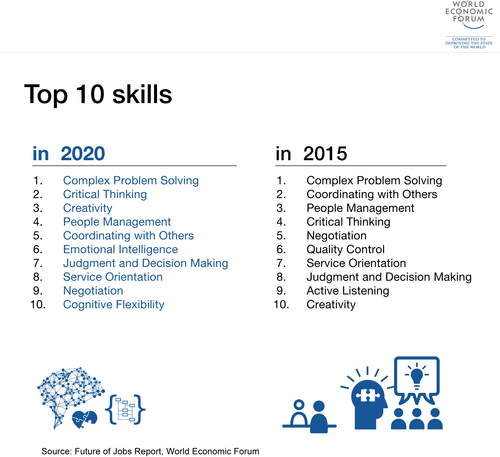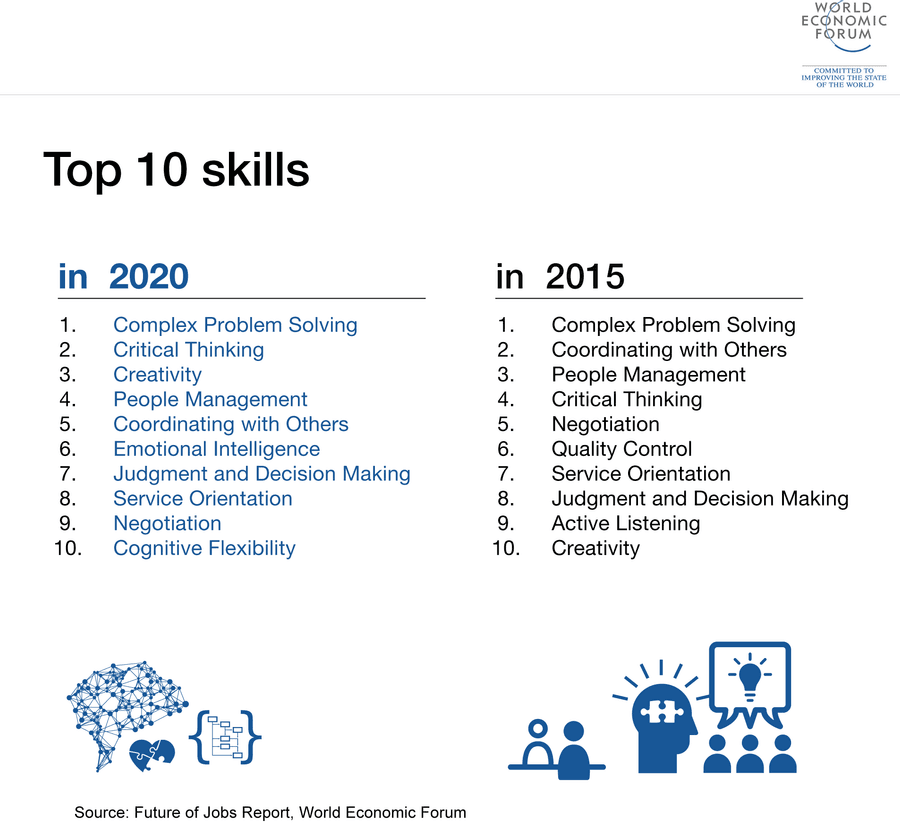The 10 skills you need to thrive in the Fourth Industrial Revolution
Curated from: weforum.org
Ideas, facts & insights covering these topics:
2 ideas
·1.02K reads
11
Explore the World's Best Ideas
Join today and uncover 100+ curated journeys from 50+ topics. Unlock access to our mobile app with extensive features.
Worker Skills In The Future
As the Fourth Industrial Revolution automates most tasks and expands new fields of knowledge, the skills required in the work market will change.
Creativity and emotional intelligence will become some of the top skills workers will need. With the avalanche of new products, new technologies and new ways of working, workers will need to become more creative in order to benefit from these changes.
72
359 reads
Top 10 Worker Skills In 2020
- complex problem solving
- critical thinking
- creativity
- people management
- coordinating with others
- emotional intelligence
- judgment and decision-making
- service orientation
- negotiation
- cognitive flexibility
143
666 reads
IDEAS CURATED BY
Vihaan Das's ideas are part of this journey:
Learn more about personaldevelopment with this collection
How to ask open-ended questions
How to avoid awkward silences
How to show interest in others
Related collections
Similar ideas
3 ideas
4 ideas
5 ideas
Read & Learn
20x Faster
without
deepstash
with
deepstash
with
deepstash
Personalized microlearning
—
100+ Learning Journeys
—
Access to 200,000+ ideas
—
Access to the mobile app
—
Unlimited idea saving
—
—
Unlimited history
—
—
Unlimited listening to ideas
—
—
Downloading & offline access
—
—
Supercharge your mind with one idea per day
Enter your email and spend 1 minute every day to learn something new.
I agree to receive email updates


